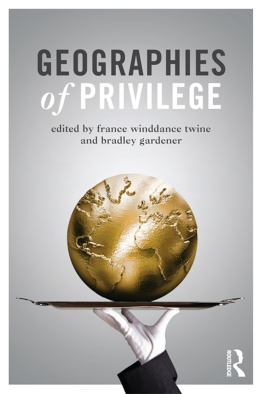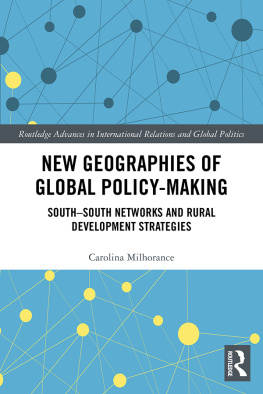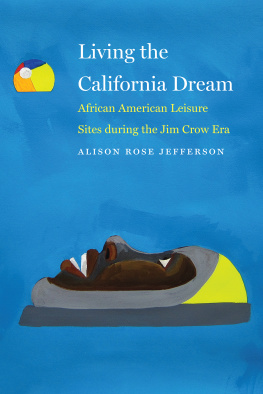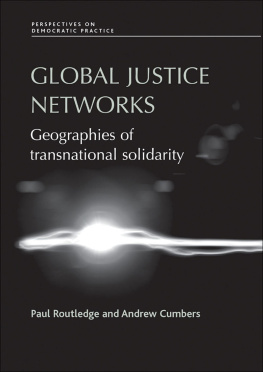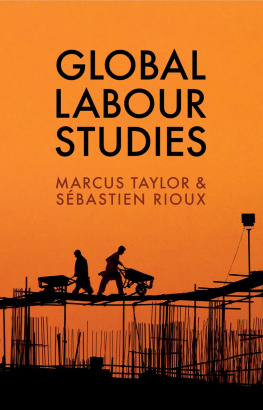GEOGRAPHIES OF PRIVILEGE
What role does space play in the control and distribution of resources such as housing, education, leisure, sex, and safety? Geographies of Privilege presents case studies from around the globe that provide analyses of power as it operates within local, national, and global networks. How are social inequalities (racial, sexual, economic, occupational) experienced, reproduced and challenged in local, global and transnational spaces?
Twine and Gardener have given us an interdisciplinary collection that provides empirically grounded case studies that reveal the ways that a nuanced analysis of space (domestic, institutional, transnational) is crucial in analyses of intersecting social inequalities. The contributors to this volume analyze how power is transferred and transformed into economic, social, symbolic, and cultural capital.
The volume's contributors take the reader to compelling global and local sites including brothels, blues clubs, dance clubs, elite schools, detention centers, advocacy organizations, and public sidewalks in Scotland, Italy, Spain, United Arab Emirates, Mozambique, South Africa, the United States, and the European Union. Geographies of Privilege is the perfect teaching tool for courses on social inequality in Geography, Sociology, Anthropology, American Studies, European Studies, and Global Studies.
France Winddance Twine is Professor of Sociology at the University of California Santa Barbara. She is an ethnographer, a critical race theorist and a documentary filmmaker who earned her degree at the University of California- Berkeley. She has published more than 60 books, journal articles, book reviews and essays. She is the author and an editor of 8 books including Geographies of Privilege (forthcoming, 2013) A White Side of Black Britain: interracial intimacy and racial literary (2010), Outsourcing the Womb: race, class and gestational surrogacy in a global market (Routledge, 2011a), Retheorizing Race and Whiteness in the 21st Century (with Charles Gallagher, 2011b) and Feminism and Antiracism: international struggles for justice (New York University Press, 2000). She has served as Deputy Editor of American Sociological Review: the official journal of the American Sociological Association. Twine currently serves on the inter national editorial boards of the journals Ethnic and Racial Studies, Sociology: the official journal of the British Sociological Association and Identities: Global Studies in Culture and Power.
Bradley Gardener earned his Ph.D. in the Earth and Environmental Sciences Program at the CUNY Graduate Center. He has taught at several CUNY schools and has been employed as writing fellow at Medgar Evers College in Brooklyn, New York. His research focuses on the intersections between race, migration, place, and identity.
This compilation of inter-disciplinary, trans-national research reveals the fundamental connections between space and privilege through richly contextualized ethnographic and qualitative data. Examining diverse institutional settings, from neighborhoods to civil rights organizations to schools, Geographies of Privilege elucidates how the social reproduction of privilege occurs in geographies of land, identity and the body. A must read for all who study privilege and inequality!
Wendy Leo Moore, Sociology, Texas A&M University
Geographies of Privilege is an innovative treatment of how privilege gets reproduced through space and how space shapes privilege. The essays are must-read material for those interested in inequality, power and privilege.
Joyce M. Bell, Sociology, University of Pittsburgh
GEOGRAPHIES
OF PRIVILEGE
France Winddance Twine and Bradley Gardener

First published 2013
by Routledge
711 Third Avenue, New York, NY 10017
Simultaneously published in the UK
by Routledge
2 Park Square, Milton Park, Abingdon, Oxon OX14 4RN
Routledge is an imprint of the Taylor & Francis Group, an informa business
2013 Taylor & Francis
The right of the editors to be identified as the authors of the editorial material, and of the authors for their individual chapters, has been asserted in accordance with sections 77 and 78 of the Copyright, Designs and Patents Act 1988.
All rights reserved. No part of this book may be reprinted or reproduced or utilised in any form or by any electronic, mechanical, or other means, now known or hereafter invented, including photocopying and recording, or in any information storage or retrieval system, without permission in writing from the publishers.
Trademark notice: Product or corporate names may be trademarks or registered trademarks, and are used only for identification and explanation without intent to infringe.
Library of Congress Cataloging in Publication Data
Geographies of Privilege / France Winddance Twine and Bradley Gardener. 1st Edition.
pages cm
Includes bibliographical references and index.
1. Social classes. 2. Elite (Social sciences) 3. Race awareness. 4. Whiteness (Race identity) I. Twine, France Winddance, 1960, editor of compilation. II. Gardener, Bradley, editor of compilation.
HT609.G46 2013
305.5dc23
2012029343
ISBN: 978-0-415-51961-8 (hbk)
ISBN: 978-0-415-51962-5 (pbk)
ISBN: 978-0-203-07083-3 (ebk)
Typeset in Minion
by EvS Communication Networx, Inc.
This book is dedicated to the global Occupy Movement and to other social justice movements that support the 99%, who struggle to support their families, friends, and communities without the privileges that transnational elites take for granted.
Contents
PART I
Privileged Bodies in Pleasure and Leisure Spaces: Sex, Music, and Dance Clubs
The sex industry in Dubai includes migrant women from Sub-Saharan Africa, East Asia, Eastern Europe, and the Middle East (North Africa). This chapter examines the hierarchy of desire, that is the demand for whiter and lighter skinned women. This ethnic hierarchy is structured by the locations within the city where they perform their labor. It privileges Iranian and Moroccan women who are perceived as more desirable and allows them to provide sexual services in safer, elite neighborhoods in the city. Anti-trafficking discourses also produce a form of privilege for Euro-Americans who can rescue sex workers who are classified as either villains or victims depending upon their national origin and how they are racialized.
This chapter draws on field research in a bar and dance club in Pietermaritzburg, South Africa, to outline a critical approach to place-identity that moves beyond the rhetoric of inclusion-exclusion. This chapter offers an analysis of gender privilege by examining the emotional or affective realm of privilege in a middle- to upper middle-class heterosexual dance club where women are privileged as customers in order to provide subjects for male consumption.
This chapter provides an analysis of a black-owned blues club on Chicago's South Side that is currently undergoing a transformation. How are elite patterns of consumption shaping the decisions of black blues clubs owners? Located in a two-mile area that is in the core of South Side's black ghetto, blues clubs are under pressure to upscaleto transform their clubs into a more marketable commodity that provides pleasurable experiences for elites. How do the owners of these clubs decide what kind of social milieu they will cultivate as they seek to produce pleasure and identity-nourishment for themselves and others in the club? Will they transform their club into a new playground for reverie and spectatorship for white elites?

